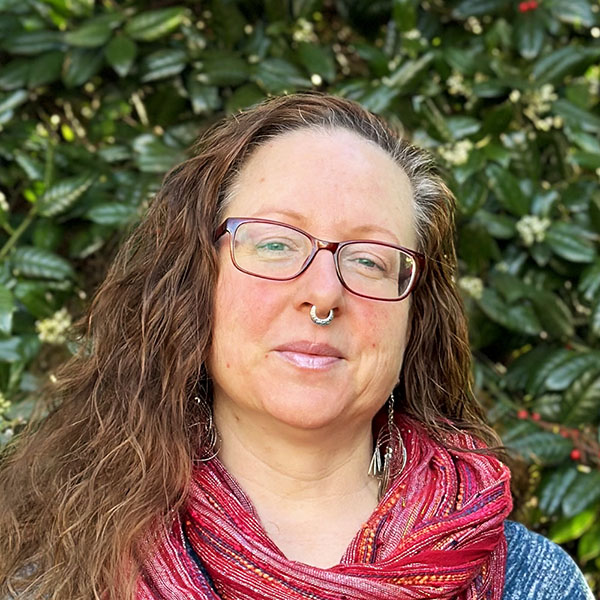Understanding Trauma: Types, Impacts, and the Role of PTSD

Learn from Skyland Trail Family Therapist Jessica McMorris, MSW, on the different types of trauma, including PTSD, and learn how trauma affects individuals and families.
Trauma affects individuals, families, and communities in profound and lasting ways. At Skyland Trail, we recognize the importance of understanding trauma not just as an event, but as an ongoing experience that can shape lives across generations. In this blog, we explore what trauma is, the various types that can occur, and how post-traumatic stress disorder (PTSD) fits into the broader landscape of trauma-related challenges.
What Is Trauma?
Trauma is more than a reaction to a single distressing event. It is the biological, psychological, and relational response to an overwhelming experience or series of experiences. At its core, trauma is marked by a profound sense of fear and powerlessness. The severity of trauma’s impact is influenced by a person’s neurobiology, previous exposure to adversity, access to support, and capacity for emotional regulation.
As Dr. Bessel van der Kolk puts it, “Trauma is not the story of what happened a long time ago. Trauma is residue that’s living inside of you now.”
The Lasting Effects of Trauma
Trauma can lead to long-term changes in brain function, emotional processing, and physical health. It can often disrupt an individual’s ability to work, maintain relationships, or perform daily tasks. Family dynamics and community interactions can also be affected. Left unaddressed, trauma can become a multigenerational issue, embedded in both behavior and even genetic expression.
Types of Trauma
Trauma manifests in many forms, each with unique causes and impacts. Understanding the distinctions among types of trauma is essential for identifying appropriate treatment and support.
Single-Episode Trauma
These are significant, often sudden events that happen once, such as:
- Natural disasters
- Accidents
- Physical or sexual assault
- Robberies or home invasions
- Mass shootings or bombings
Though time-limited, these events can leave lasting psychological scars.
Developmental Trauma
Also known as attachment trauma, this form of trauma results from repeated adverse experiences during childhood. It can also stem from emotional neglect—when a child does not receive the nurturing they need during critical developmental stages.
Complex Trauma
Sometimes referred to as relational trauma, complex trauma arises from ongoing, repeated exposure to adversity in relationships. Examples include:
- Chronic childhood abuse
- Domestic violence
- War or genocide
These experiences often begin in childhood but can continue into adulthood, impacting how individuals form and maintain relationships.
Racial Trauma
Racial trauma involves the psychological effects of racism and race-based discrimination. It can be triggered by:
- Personal experiences of prejudice
- Witnessing racial injustice
- Generational exposure to systemic inequality
The impact of racial trauma can accumulate over time, leading to chronic emotional distress.
Institutional Trauma
This occurs when individuals are harmed by systems that are supposed to protect them—such as schools, hospitals, or the justice system. It often includes feelings of betrayal and abandonment, particularly when individuals expect fair treatment or safety.
Vicarious and Secondary Trauma
- Vicarious trauma occurs when someone is indirectly exposed to trauma, often through hearing about or witnessing another person’s suffering.
- Secondary trauma affects those who live with or care for trauma survivors. Family members and professionals alike may experience exhaustion and emotional distress as a result of supporting loved ones through their trauma.
Multigenerational (Transgenerational) Trauma
Trauma can be passed down through generations, both behaviorally and biologically. Children may be affected by the unprocessed trauma of their parents or grandparents through family dynamics or even changes in genetic expression. Over time, trauma can become a normalized part of a family’s functioning.
PTSD: When Trauma Becomes a Disorder
Post-traumatic stress disorder (PTSD) is a clinical diagnosis that may develop when the symptoms of trauma are severe and persistent. Not everyone who experiences trauma will develop PTSD. However, for those who do, the condition can significantly impair daily life.
Common Symptoms of PTSD
- Nightmares or flashbacks
- Intrusive thoughts or memories
- Hypervigilance and exaggerated startle response
- Emotional numbness or disconnection
- Difficulty sleeping and concentrating
- Feelings of helplessness or reliving the traumatic event
These symptoms can disrupt work, relationships, and self-care, and may persist for months or years without treatment.
Long-Term Consequences
According to the American Psychological Association, untreated trauma and PTSD can lead to:
- Anxiety and depression
- Physical symptoms like headaches and gastrointestinal issues
- Risk-taking behaviors and substance misuse
- Strained family and social relationships
In cases of developmental trauma, individuals may also struggle with low self-esteem, emotional dysregulation, and difficulty connecting with others.
Trauma and the Family System
Trauma rarely affects only one person—it reverberates through entire families and communities. Family members may become hypervigilant in an effort to prevent future harm, leading to rigid patterns of control and emotional exhaustion. Over time, this can erode trust, intimacy, and open communication.
In family therapy, exploring trauma’s impact can help individuals better understand their own behavior and build more supportive, connected relationships.
Trauma-Informed Care at Skyland Trail
At Skyland Trail, we understand that trauma is often a key component of mental health challenges. Our treatment approach is trauma-informed, meaning we recognize the widespread impact of trauma and actively work to create a safe, supportive environment for healing. Many of our clients have experienced various forms of trauma, and our multidisciplinary team is trained to respond with empathy, respect, and evidence-based practices. Whether someone is dealing with PTSD, developmental trauma, or the long-term effects of adverse childhood experiences, we provide individualized care that promotes resilience, recovery, and lasting wellness.
